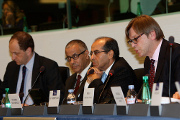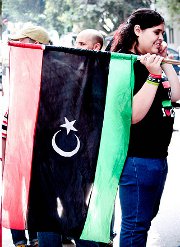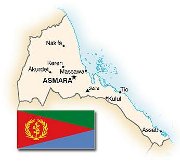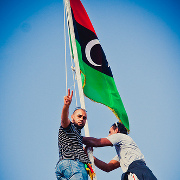Troops attack churches in Kachin state conflict.
By Vishal Arora
NEW DELHI, October 28 (Compass Direct News) – A recent attack on Christians and church buildings by Burmese soldiers in Kachin state showed that Christian civilians are targeted in the military offensive against insurgents.
“Targeting of Christians is not unusual in Burma’s conflict zones,” Nawdin Lahpai, editor-in-chief of the Kachin News Group, told Compass by phone, referring to the Oct. 16 military firing at a church, detention of a priest and four parishioners, and burning of church property in Kachin state. “The incident reflects the long-time policy of the Buddhist-Burman-majority Burmese government, which discriminates against the ethnic Christian minority.”
About 90 percent of the roughly 56 million people in Burma (also known as Myanmar) are Buddhist, mostly from the Burman ethnic group. Ethnic Kachins – like six other ethnic minorities who live along the country’s borders with China, Thailand and India – have had armed and unarmed groups fighting for independence or autonomy from successive military-led regimes for decades.
Intense fighting between the Burma army and the Kachin Independence Organization (KIO) began in June. But it’s not just the armed groups that are the target of Burmese troops, said the editor, a Kachin Christian.
In the Oct. 16 attack, about 150 soldiers from Light Infantry Battalion 438 stormed Nam San Yang village in the Daw Phung Yang area of Bhamo District in Kachin state, which borders China, reported Mizzima, a Delhi-based news organization run by Burmese journalists. Members of a Catholic church who were preparing for Sunday mass heard gunfire and saw soldiers approaching them. They lay on the ground as the army men opened fire at them. No one was hurt.
The soldiers caught Catholic priest Jan Ma Aung Li and four other men.
“They said that all males in the village were people’s militiamen and KIO staff,” Mizzimaquoted Aung Li as saying.
The soldiers asked the Christians where the insurgents had stored guns and bombs. When the five detainees said they were not from the KIO, the soldiers kicked them and hit them with gun butts. They ransacked the whole church, apparently to look for weapons and bombs.
“Then they tied our hands with wire and took us away,” the priest told Mizzima. On the way, about 150 more soldiers from Light Infantry Battalion 121 joined them. The Christians were forced to carry heavy rucksacks as they walked with the 300 army men. After walking for three hours, they rested at Lawkathama Monastery, where the soldiers and the KIO’s armed wing, the Kachin Independence Army, had a brief exchange of fire.
Later, they arrived at a Baptist church, where some soldiers burned the house of the priest, Aung San. The soldiers asked the detainees to tell the KIO that the army was preparing to attack their headquarters in Laiza before releasing them.
When the Christians reached their village, they found their houses burning.
The Kachin editor said religion was a key factor in the Kachin conflict, which dates back to the country’s independence in 1948.
Burma’s seven ethnic states, where most Christians and ethnic minorities live, were administered separately by the British. But ethnic leaders agreed to be incorporated into Burma after the Panglong Agreement was signed in 1947 providing for full autonomy, a share of the national wealth and the right to secession to ethnic states.
But Gen. Aung San – democracy activist Aung San Suu Kyi’s father who was the head of the then interim government and who led the signing of the agreement – was assassinated months later. Subsequent governments refused to honor the agreement, but they presumed ethnic states to be part of the new country.
“The government’s policy of Burman-Buddhist domination over minorities started with the country’s first prime minister, U Nu,” the Kachin editor said. The U Nu-led government made Buddhism the state religion in 1961, and that’s when the KIO was formed.
In 1994, the KIO signed a ceasefire agreement with the government. But months before Burma’s first democratic election in two decades in September 2010, the then military-led government asked all armed insurgents to join the border security force. The KIO refused to do so, and the military deemed the ceasefire as void. The army’s offensive followed in June 2011, which has displaced over 30,000 Kachins.
While the majority of Kachins are Christian, Burmese authorities do not allow them to construct new church buildings as non-Burman Buddhist cultural expressions are seen as signs of insurgency.
In a report entitled, “Army Committing Abuses in Kachin State,” released this month, Human Rights Watch (HRW)) quoted a 65-year-old Kachin villager from Sang Gang as saying that when the fighting started in June 2011, the Burmese army uprooted a large Christian cross from a hilltop regarded by the villagers as sacred and used it as a stand for their weapons. The villagers had planned to eventually construct a church building on the site.
A 58-year-old Baptist Christian farmer from Maisakba told HRW how on three occasions. From 2000 to 2009, Burmese authorities forbade his community from constructing a new Christian church, in part because the proposed structure was in the shape of a cross.
The editor said he was worried as the army was increasing military presence also in other ethnic states such as Karen. Burma’s neighbors China, Thailand and India have invested huge sums of money in power generation projects in ethnic states and the Burmese government now wants to end the decades-long insurgency.
“The Kachin conflict might soon expand to the whole ethnic region,” he said.
And when that happens, he added, the suffering of civilians, including Christians, will mount manifold.
END
**********
Copyright 2011 Compass Direct News



















